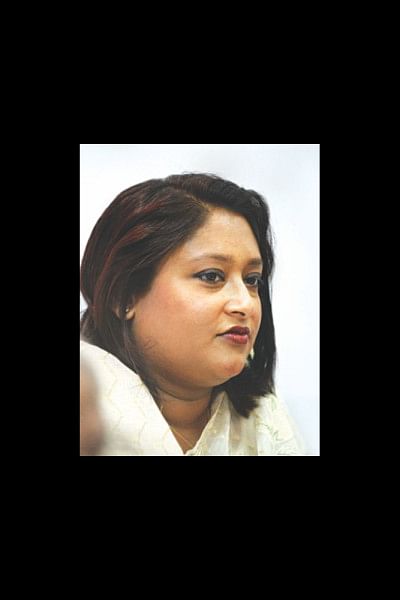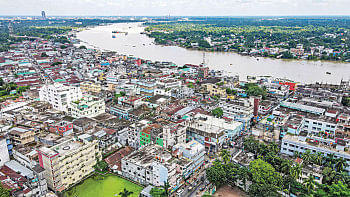Saima WHO champion for autism

The World Health Organisation South-East Asia Region has designated Saima Wazed Hossain, a strong advocate for autism, as its champion to enhance commitment and generate awareness and action to address the sufferings of children with autism as well as their parents and caregivers.
“Ms Hossain's dedicated and unprecedented efforts have put autism high on the health agenda in her country Bangladesh, and helped get substantial regional and global attention to autism spectrum disorder [ASD] and other mental and neuro-developmental disorders. Her support as regional champion is expected to garner momentum for awareness and action in member countries, as much remains to be done for autism across the region,” Dr Poonam Khetrapal Singh said on the occasion of World Autism Day observed on April 2 every year.
Globally, autism prevalence rates are estimated at 160 cases in a population of 10,000, or one in 62 children. Data from highly resourceful countries show that the estimated lifetime costs of caring for individuals with autism range from $1.4 million to $2.4 million per case depending on the level of intellectual impairment, according to a statement issued by WHO.
In the low-and middle-income countries, children with autism don't get the medical attention and care they need. Their life is a struggle, often marred by stigma, marginalisation and discrimination. Autism continues to be a public health challenge that needs to be addressed with more focused efforts, Khetrapal Singh said.
WHO has been advocating for political commitment to the needs and services for autistic children, the scaling up of resources and raising public awareness to facilitate early detection, community-based intervention and multi-sectoral approach to reduce the impact of ASD.
Among the region's 11 countries, Bangladesh has made focused interventions and much of the pioneering work has been initiated by Saima, daughter of Prime Minister Sheikh Hasina. The health ministry has integrated mental health care into primary health care.
Autism Spectrum Disorder and other neuro-developmental-related disorders have been integrated in the health, population and nutrition sector development programmes.
Institute of Neuro-development and Autism has been established, while 10 medical colleges have a special wing to screen childhood disability.
In recognition of her commitment to the cause of ASD in Bangladesh, Saima was honoured by WHO South-East Asia Regional Office with Excellence in Public Health Award in September 2014.
She has made important contributions to the regional and global efforts on the matter in her various roles and capacities. She launched South-East Asia Autism Network in July 2011 and is a member of WHO's global expert advisory panel on mental health.
Saima leads various national, regional and global advisory committees and networks. She is the chair of Global Autism Public Health Initiative, Bangladesh, and National Advisory Committee on Neuro-developmental Disorders and Autism. She is the founding member of the Mental Health Accessibility Task Force of the Ontario Psychological Association, Toronto, and an international advocate for autism and neuro-developmental disorders for Organisation for Global Autism Bangladesh.
As WHO champion, Saima will be supporting WHO's advocacy with member countries for inclusion of ASD in national policies and strategies, promoting WHO's mental health initiatives and strengthening research and evidence of ASD for more focused interventions, according to the statement.

 For all latest news, follow The Daily Star's Google News channel.
For all latest news, follow The Daily Star's Google News channel. 





Comments